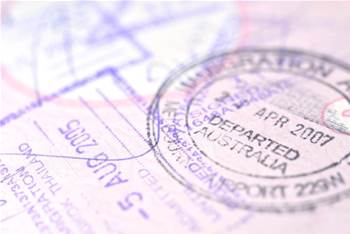Australia’s largest universities, Atlassian and the Commonwealth Bank are among the biggest sponsors of visas through the government’s permanent migration scheme for highly-skilled technologists.
The Department of Home Affairs has laid bare the more than 500 companies and other organisations that have nominated migrants under the ‘Global Talent (Independent)’ (GTI) program in newly released figures.
The GTI program, which launched in November 2019, aims to attract the best and brightest tech talent from across the world to Australia with the offer of fast-tracked permanent residency to maintain competitiveness.
It covers 10 “future-focused” sectors – up from seven when the program began – that include resources, energy, agri-food and agtech, health, education, defence, space, “digitech”, and financial services.
A total of 4109 visas were issued in the first seven months of the scheme, despite initially struggling to attract applicants, followed by 9584 when the cap was raised from 5000 to 15,000 last financial year.
Until now, the organisations with a "national reputation in the same field" that had nominated the visa applicants – a requirement of the program – were unknown.
Australian citizens, permanent residents or eligible New Zealand citizens can also nominate, as long as they similarly have built up a professional reputation in that technology field.
In answers to questions on notice taken from a parliamentary inquiry in June but only published last week, Home Affairs has now listed all nominating business for the GTI program between November 2019 and the end of June 2021.
The list reveals the Australian Computer Society (ACS) as the top nominating organisation with 87 visa lodgements over two years, followed by Monash University and the University of NSW with 61 and 53, respectively.
The ACS is in a different category to others on the list in that - as an IT industry body - it offers a “candidate nomination service for a fee”, where it validates the qualifications, skills and experience of applicants to the scheme.
An ACS spokesperson told iTnews that as an “organisation with a national reputation in the program’s digitech target sector”, it only responds to nomination requests and does “not seek candidates [itself] or bring people into Australia”.
Other organisations are using the visa program to source direct hires from overseas.
Monash University said that it has “been fortunate to attract and appoint a number of talented international academic staff who are world leaders in their respective disciplinary areas and therefore have met the eligibility requirements”.
UNSW similarly said it has used the program to “recruit world-leading academics, predominately into research roles in the STEM disciplines, when their area of expertise is not available in Australia”, and “supported the university’s ongoing development of critical knowledge and research” in the process.
A number of other organisations were the nominating organisation on less than 30 visa lodgements over the two years, including the University of Sydney (25), Atlassian (20), the Commonwealth Bank (20), University of Melbourne (20) and University of Queensland (20).
Sydney University said it had used the program to recruit and retain a “small number of high calibre academic staff” with a “demonstrated record of achievement and international recognition in some of the government’s target sectors”, though had used a normal competitive recruitment process.
CBA said the program had been used to source talent alongside other internal initiatives such as its graduate program, which it plans to grow to 200 this year, at a time when securing talent for its large technology workforce remains a challenge.
“The demand for top technology talent continues to be a challenge in Australia considering our population size, number of university graduates, other corporations seeking to hire technology professionals, along with the rise in tech start-ups,” a CBA spokesperson said.
Other organisations on the GTI list include Rio Tinto (18), RMIT (18), University of Adelaide (16), South32 (15), CSIRO (10), Microsoft (10), Google (9), NAB (8), Austrade (7), Deloitte (7), Fintech Australia (7), Woodside (7) and BHP (6).
Around 480 organisations have made less than five GTI visa lodgements, according to Home Affairs. The full list can be found here.
Earlier this year, the parliamentary inquiry into the skilled migration program urged the government to ditch the Australian and New Zealand Standard Classification of Occupations (ANZSCO) list to make it easier for companies to source workers from overseas.
The committee recommended that a new occupation and/or skills identification system that offers the flexibility to adapt to emerging labour market needs be developed by the National Skills Commission to replace ANZSCO.
If the recommendation is implemented, it would mean companies no longer have to shoehorn emerging roles into outdated descriptions in order to bring in workers from overseas.
The committee also recommended giving multinational companies an exemption from labour market testing to transfer “executive employees” to Australia where necessary for them to “expand their operations in Australia”.




.jpg&h=140&w=231&c=1&s=0)





















